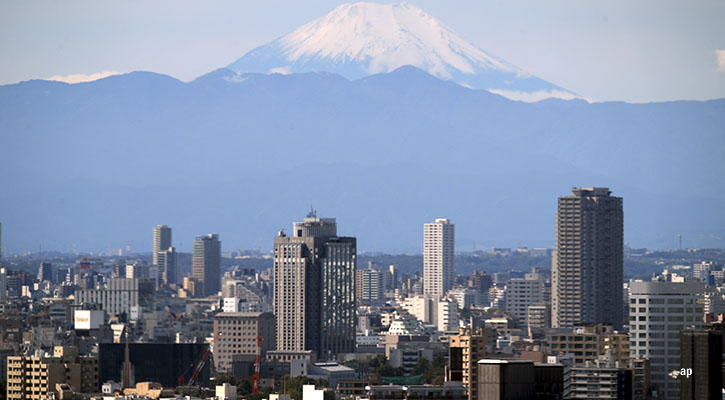Emma Wall: Hello and welcome to the Morningstar series, "Why Should I Invest With You?" I'm Emma Wall and I'm joined today by Simon Somerville, Manager of the Jupiter Japan Income Fund.
Hi, Simon.
Simon Somerville: Hi. Good morning, Emma.
Wall: So, it's been a very good year for Japan. As a number of commentators, people in Morningstar included, predicted, they said, 2015 was going to be bad for U.S. equities and great for Japan equities, we have seen that. The Nikkei has raised from about 17,000 at the beginning of the year to nearly 21,000 today. I thought maybe you could just recap what's caused that rally?
Somerville: I think the first reason was very much domestic buying in the market and that was I guess the beginning of the year what everyone should have hoped for and predicted that we would see the so called GPIF, the government pension scheme, increase their equity allocation which essentially has what happened. So, the major buyers in the market in the last six months have been very much domestic.
But I think the second theme that has emerged very much over the end of the first quarter into the second quarter and is to me a very much an ongoing theme is this change in capital policy at corporates and what we mean by that is we're seeing dividends rise sharply.
We're seeing significant increase in share buybacks as companies look to increase their return on equity. And this is sort of for us is something new in Japan. It's something we've been hoping for a long time and that's been very much driving the market in recent months.
Wall: Those things are fantastic for domestic and international investors. The question I suppose now is, great, if you were in it and you've benefited from that rally. But for those who perhaps haven't yet taken the plunge, have they missed it? Is it too late to invest in Japan?
Somerville: I hope not. I mean, the market is still significantly off its all-time highs. That theme of change in capital policy continues and will continue. We're still going to see dividends rise. We're going to see share buybacks increase. In fact, just in the first quarter, so that's in the April to June quarter, we've seen a very substantial increase in share buybacks from corporates, companies like Toyota announcing significant very large sized share buybacks.
So, I think that continues in the market. Firm earnings are very, very strong, particularly relative to the rest of the world. So, that to me means that Japan certainly on a relative basis looks very attractive place to invest.
Wall: [Prime Minister Shinzo] Abe is a risk though, isn't he?
Somerville: Well, there is always a risk with Abe because the stories very much surrounds him. He is one who is driving through a lot of this change and his cabinet. At the moment, his popularity is under pressure. Although I think his popularity I think is at 41% at the moment is still quite high, but he is off from the 50% plus that we saw a few months ago and this is as he pushes through changes to Japan's defense lower at the moment.
So, there is a risk, a small risk, that either his popularity falls too much and there is that murmurings in this party or that even and I've heard he said that that once he gets his security changes through, defense changes through that actually he will step down. I think that's unlikely, but there is always an Abe risk, if you like, because the stories very much surround him.
Wall: I think some sort of critics of the Japanese market simplify it, perhaps overly so, as purely a play on currency which is the yen has been weak and the dollar has been strong and that's what's driven the rally. Is that true and if so, if the dollar weakens, does that mean that Japan is at risk?
Somerville: I think there is an extent to how much it falls, this year hasn't been about dollar/yen at all and the market is performing very well without their currency really moving very much. Yes, if the yen weakens that helps export earnings but it doesn't really help domestic earnings and domestic stocks certainly have been the ones that have been performing very well.
So, I'm not sure it is as simple as straight dollar/yet being the driver of the market. But the yen is currently 124, 125 against the dollar. If we certainly revert it to 110, yes, that's a risk to the market. I think as long as we stay in the sort of 115 to 125, 130 range, it's not going to be a significant factor.
Wall: Simon, thank you very much.
Somerville: Thank you.
Wall: This is Emma Wall for Morningstar. Thank you for watching.




























